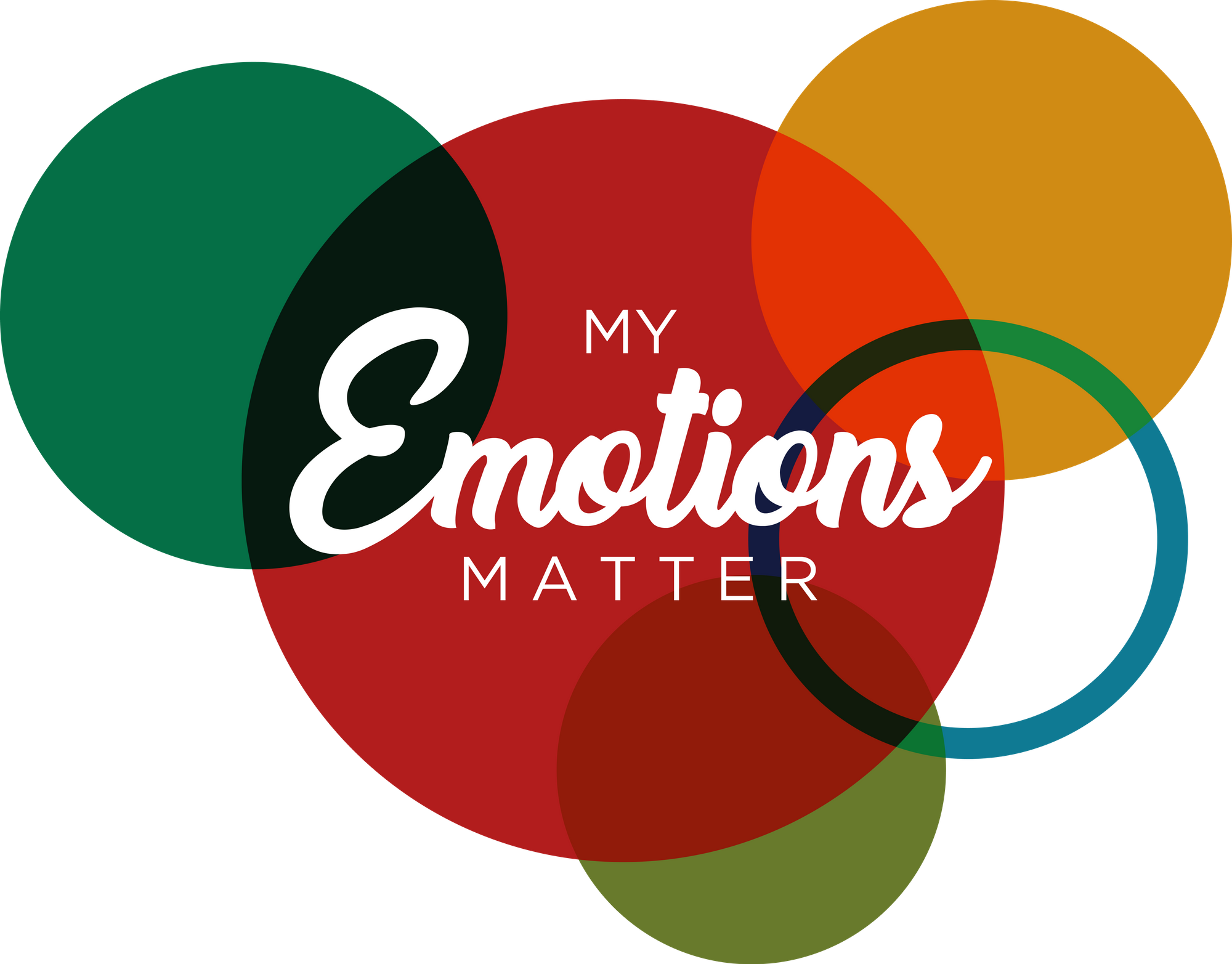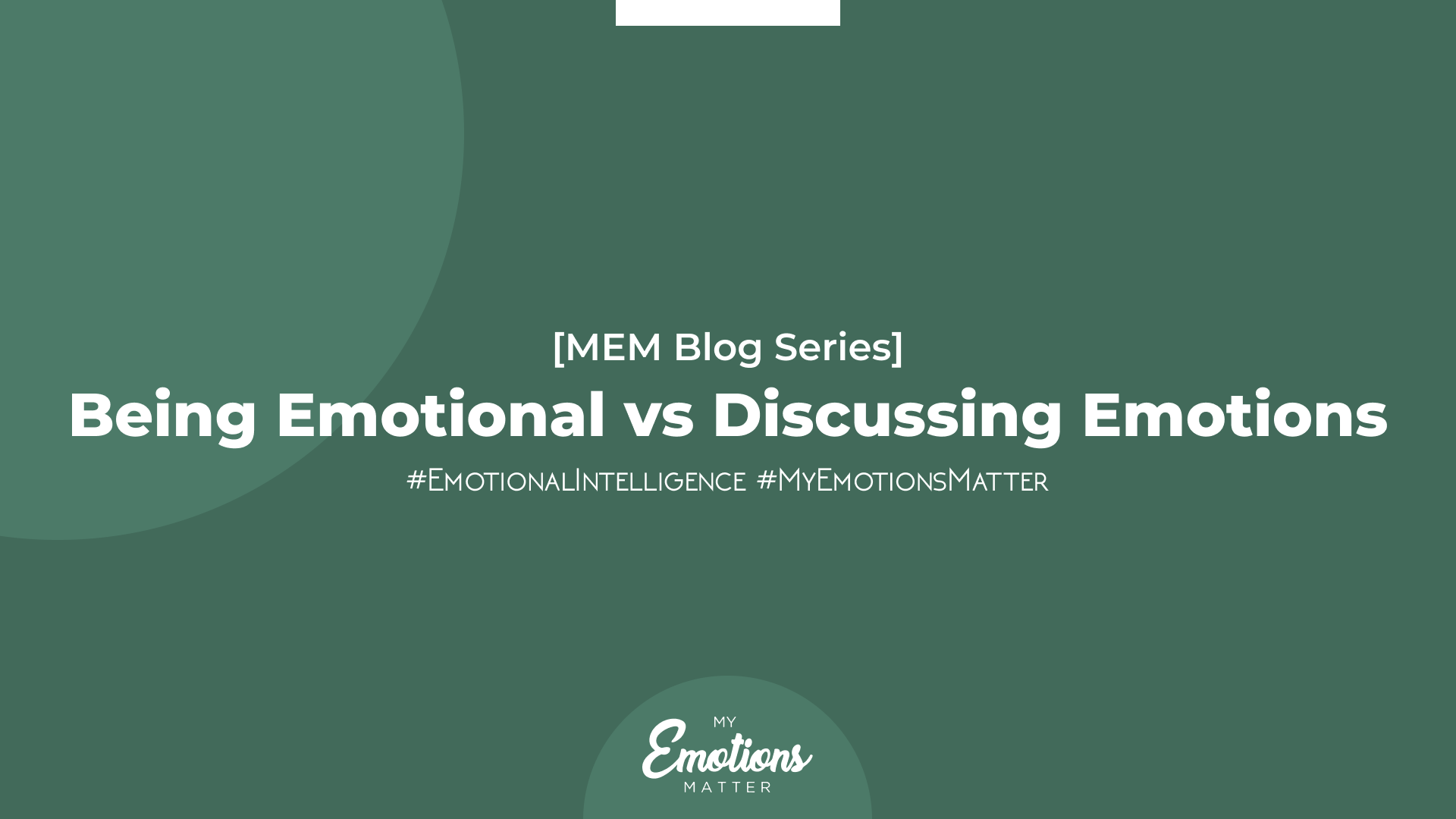Being Emotional vs Discussing Emotions
In many sessions that I have facilitated, I often come across questions like, “If I am okay the way I am, wouldn’t discussing emotions make me more of an overthinker?” “Isn’t it likely that talking about emotions would make us more vulnerable and emotional than we already are?” “Wouldn’t reflecting on emotions make our decision-making process more complex?”
All these questions stem from how we perceive emotions and manage them in our day-to-day lives. For some of us, emotions denote weakness because we view them in the light contrast to rationality. Being rational is what most of us want at the end of the day, but there’s no denying that we humans are irrational in the first place. There’s no one to blame for that—our biological wiring still makes us perceive and respond to things the way we did thousands of years ago, although we’ve come a long way.
Emotions have an all-encompassing role to play in our lives. Emotions matter. They impact our learning and the way we make decisions. They affect the way we treat other people. Most importantly, they impact our well-being. Therefore, to deny accepting, reflecting, and dissecting our emotions would mean denying the humanity in us. Being emotional isn’t a subjective perspective—it’s a reality that binds all of us together. No human is exempt from feeling emotions, but what distinguishes one human from another is—how much one is aware of their emotional patterns and how one manages them.
Reflecting upon our emotions isn’t anything as close to ‘overthinking’ or ‘taking things too seriously,’ as is usually perceived. There is a distinguishing difference between the two. Reflecting on emotions to understand ourselves and our patterns better is much different from playing thoughts repeatedly in our heads. Emotional self-awareness is the process of reflecting on how we feel (positive or negative emotional experiences) as induced by different situations or interactions (triggers) and what do those emotions signal (fulfilled or unfulfilled needs). This process further enables us to respond in ways helpful for us or to make better choices. So, in this regard, self-awareness helps us make decisions more reasonably and in alignment with what we might eventually need.
Let’s dissect this better through an example. Consider there’s a person named A who gets enraged when she’s starving. Imagine that she is likely to blast off at the very next person she sees in such a situation. If she isn’t aware of this pattern, she will affect her well-being as well as her personal and professional relationships. Now, let’s say there’s a person B who gets triggered by the same situation but is aware of such a pattern. What difference will this create? She’ll start carrying a light snack with her so that whenever she can’t get a chance to eat proper meals, she can have something light. Hence, she can prevent herself from being gripped by negative emotions, and from snapping at her partner or colleagues. She might as well communicate about her patterns to people close to her so that even they are aware of her needs and possible reactions when they’re unmet.
In this sense, self-awareness can help people reduce the emotional distance in relationships. Let me explain how. There was a point last year when my brother wasn’t getting as good grades as he did previously, and it was affecting my parents. My mother especially had a hard time processing it because she is an educator and values learning above everything else. Whenever she saw my brother using the phone or laptop, she would start telling him how incompetent he was becoming because of his over-indulgence in gadgets. She would blame him for his carelessness and incompetence. And, as a natural inclination, my brother would either shut himself completely or start quarreling continuously. In one of those recurring situations, when it became too much to take, I decided to intervene. Of course, such intense cycles of blaming and accusing wouldn’t stop after a single conversation, so it took quite a lot of effort on my part to help them express and understand what they were really trying to tell each other.
I eventually found out that what my mother wanted to express was the feeling of disappointment. She didn’t want to accept the fact that while she helped other students improve their learning, her son wasn’t doing good at studies. Her need was to be helpful to her son. On the other hand, my brother felt hurt because instead of receiving generous concerns and a helping hand from my mother, he was at the receiving end of blame and criticism. He needed his mother to understand why he wasn’t doing good and help him find a way out.
When things settled eventually, I witnessed them becoming more open toward each other’s feelings, expectations, and needs. They even worked together to improve my brother’s grades. There are many high-stake situations like these that we encounter in our relationships. In such situations, if we can make efforts to take a pause and reflect on our feeling and needs—we can respond in an emotionally mature way rather than getting trapped in a continuous cycle of blame and judgment.
Another common notion when it comes to emotions is that it’s equivalent to sadness or vulnerability. Emotional vulnerability helps us acknowledge, understand, and express our feelings. It is an agency that allows us to feel our emotions in the first place. Only when we don’t know how to manage our vulnerability concerning some situations and people, we might feel overly observed, judged, ashamed, or rejected. However, when we say that being emotional is more or less similar to being sad, we make a false claim. Sadness is just one emotion out of an array of different ranges and intensities of emotions that we get exposed to in our daily lives. Being emotional could mean anything—it could be mean being happy, anxious, stressed, disgusted, joyful, calm, angry, hopeful, so forth, and so on. Sadness is also one of the emotions we experience—it’s not the entirety of our emotional experiences.
When we think about reflecting on our emotions, we might feel that it’s a rigorous process and might take a lot of time, energy, and effort on our part. Well, it sure does as it requires us to do a lot of inner work. But, as we start reflecting on ourselves, the amount of time we use to make life choices feels like an investment, the energy we put into finding answers for ourselves seems useful, and efforts we make to understand ourselves become meaningful. Self-awareness is a life long process of learning about ourselves, and while we are the subjects, learning should be interesting if not always easy.




